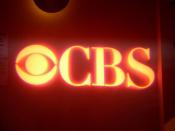Many books in the past decade have been published about the ethereal notion known as media bias. While the majority of the books have been about the so-called "liberal bias" that the media has, such as Bernard Goldberg's aptly name Bias and Ann Coulter's hate-filled rant Slander, there have also been a few about a supposed conservative bias, such as Eric Alterman's recent What Liberal Media?. The truth, that neither end of the political spectrum is willing to admit, is that both are right, and both are wrong. For all intensive purposes, there is no bias. While, no matter where one looks, there will be seemingly biased accounts, they come from both sides. You can pretty much find whatever viewpoint you want to hear from. In the next few pages, we will examine the different mediums used for news and look at reported biases in each of them.
TV is one of the more pervasive mediums used for news.
With the advent of digital cable and satellite television, it is now possible to receive up to 600 or more television channels, an increasing portion of which is devoted to news and news channels. CNBC, MSNBC, CNN, Fox News, and others are all news 24/7, and now irrelevant is the evening broadcast on the three big networks, CBS, NBC, and ABC. These are where many of the "liberal bias" complaints are directed. Goldberg's Bias focuses on his experiences on CBS and how there is an inordinate number of liberal and Democrat journalists and reporters. Unfortunately, he fails to back up these claims with any hard data or statistics. Relying mostly on tidbits from Dan Rather, such as "It's one of the great political myths, about press bias. Most reporters don't know whether they're Republican or Democrat, and vote every which...


